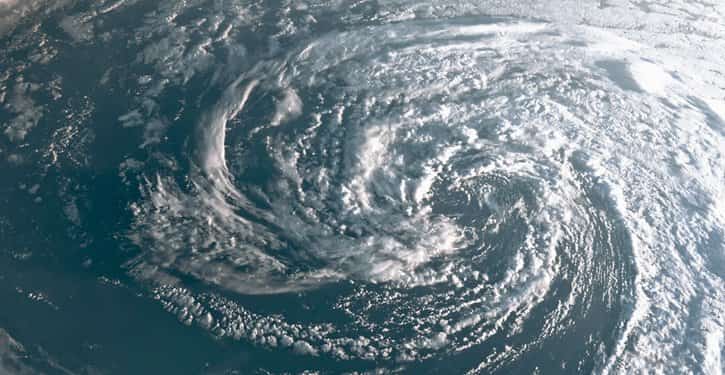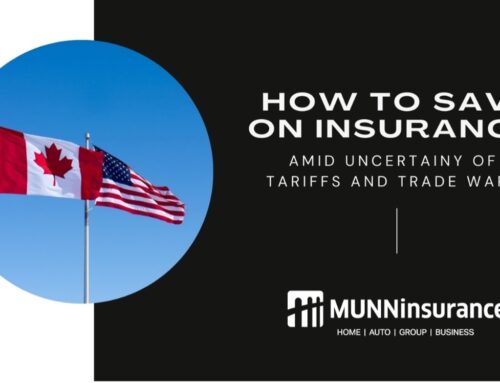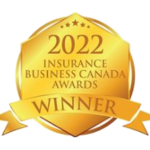How to Prepare for Hurricane Season
Weather Alerts are in effect for parts of Newfoundland and Nova Scotia with the expectation of potentially heavy rainfall, as well as the potential for gusty winds and heavy surf as Hurricane Chris moves northeast and hopefully weakens into a post tropical storm before reaching Atlantic Canada.
Hurricanes are capable of producing winds in excess of 250 kilometres per hour and causing catastrophic damage to coastlines as well as areas up to several hundred kilometres inland. Additionally, hurricanes can lead to storm surges along the coast and cause extensive damage from heavy rainfall.
Before a Hurricane
To prepare for a hurricane, take the following measures:
- Build an emergency kit and make a family communications plan. Contact Munn’s Insurance if you would like us to provide you with an emergency kit checklist or sample family communications plan.
- Learn the elevation level of your property and whether the land is flood-prone. This will help you know how your property will be affected when a storm surge or tidal flooding is forecasted.
- Identify levees and dams in your area and determine whether they pose a hazard to you.
- Learn community hurricane evacuation routes and how to find higher ground. Determine where you would go and how you would get there if you needed to evacuate.
- Make plans to secure your property.
- Cover all of your home’s windows. Permanent storm shutters offer the best protection for windows. A second option is to board up windows with marine plywood, cut to fit and ready to install. Tape does not prevent windows from breaking.
- Install straps or additional clips to securely fasten your roof to the frame structure. This will reduce roof damage.
- Be sure trees and shrubs around your home are well-trimmed so they are more wind resistant.
- Clear loose and clogged rain gutters and downspouts.
- Reinforce your garage doors. If wind enters a garage, it can cause dangerous and expensive structural damage.
- Bring in all outdoor furniture, decorations, garbage cans and anything else that is not tied down.
- Determine how and where to secure your boat.
- Install a generator for emergencies.
- If in a high-rise building, be prepared to take shelter on or below the 10th floor.
- Examine your home insurance or rental insurance policy to learn the details of how you will be covered (and what is excluded) in the event of a flood.
During a Hurricane
If a hurricane is likely in your area, you should:
- Listen to the radio or TV for information.
- Secure your home, close storm shutters and secure outdoor objects or bring them indoors.
- Turn off utilities if instructed to do so. Otherwise, turn the refrigerator thermostat to its coldest setting and keep its doors closed.
- Turn off propane tanks.
- Avoid using the phone, except for serious emergencies.
- Moor your boat if time permits.
- Keep a supply of water for sanitary purposes, such as cleaning and flushing toilets. Fill the bathtub and other larger containers with water.
- Find out how to keep food safe during and after an emergency.
You should evacuate under the following conditions:
- If you are directed by local authorities to do so. Be sure to follow their instructions.
- If you live in a mobile home or temporary structure. These shelters are particularly hazardous during hurricanes, no matter how well-fastened to the ground.
- If you live in a high-rise building. Hurricane winds are stronger at higher elevations.
- If you live on the coast, on a floodplain, near a river or on an island waterway.
If you are unable to evacuate, go to your wind-safe room. If you do not have one, follow these guidelines:
- Stay indoors during the hurricane and away from windows and glass doors.
- Close all interior doors, and secure and brace external doors.
- Keep curtains and blinds closed. Do not be fooled if there is a lull; it could be the eye of the storm and winds will pick up again.
- Take refuge in a small interior room, closet or hallway on the lowest level.
- Lie on the floor under a table or another sturdy object.
- Avoid elevators.
After a Hurricane
- Continue listening to a radio or the local news for the latest updates.
- Stay alert for extended rainfall and subsequent flooding even after the hurricane or tropical storm has ended.
- If you have become separated from your family, use your family communications plan.
- If you evacuated, return home only when officials say it is safe.
- Drive only if necessary and avoid flooded roads and washed¬out bridges. Stay off the streets. If you must go out, watch for fallen objects including downed electrical wires, weakened walls, bridges, roads and sidewalks.
- Keep away from loose or dangling power lines and report them immediately to the power company.
- Walk carefully around the outside of your home and check for loose power lines, gas leaks and structural damage before entering.
- Stay out of any building if you smell gas, and if floodwaters remain around the building or your home was damaged by fire and the authorities have not declared it safe.
- Inspect your home for damage. Take pictures of damage, both of the building and its contents, for insurance purposes. If you have any doubts about safety, have your residence inspected by a qualified building inspector or structural engineer before entering.
- Use battery-powered flashlights in the dark. Do NOT use candles. Keep in mind that the flashlight should be turned on outside before entering, as the battery may produce a spark that could ignite leaking gas, if present.
- Avoid drinking or preparing food with tap water until you are sure it’s not contaminated.
- Check refrigerated food for spoilage. If in doubt, throw it out.
- Wear protective clothing and be cautious when cleaning up to avoid injury.
- Use the telephone only for emergency calls.
- NEVER use a generator inside homes, garages, crawlspaces, sheds or similar areas, even when using fans or opening doors and windows for ventilation. Deadly levels of carbon monoxide can quickly build up in these areas and can linger for hours, even after the generator has shut off.
In addition to insuring your home, we are committed to helping you and your loved ones stay safe when disaster strikes. If you would like more information on developing a family emergency plan or building a disaster supply kit, please contact Munn Insurance at 709-726-8627 today.
Related News
Recent News
How to Save on Insurance Amid Uncertainty of Tariffs and Trade Wars
In today’s global economy, trade wars and tariffs are a hot topic, and their potential impacts reach beyond just the cost of goods like cars, appliances, and steel. If tensions between countries like Canada and [...]
Get the Best Auto Insurance Quote in Nova Scotia: A Step by Step Guide
When it comes to auto insurance, everyone wants to ensure they’re getting the right coverage at the best price. Whether you're a first-time car owner or a seasoned driver in Nova Scotia, the process of [...]
Unlock Big Savings with Group Insurance Discounts
At Munn Insurance, we know that everyone loves saving money—especially when it comes to home and auto insurance. Did you know that you may qualify for exclusive discounts just by being part of certain groups [...]












